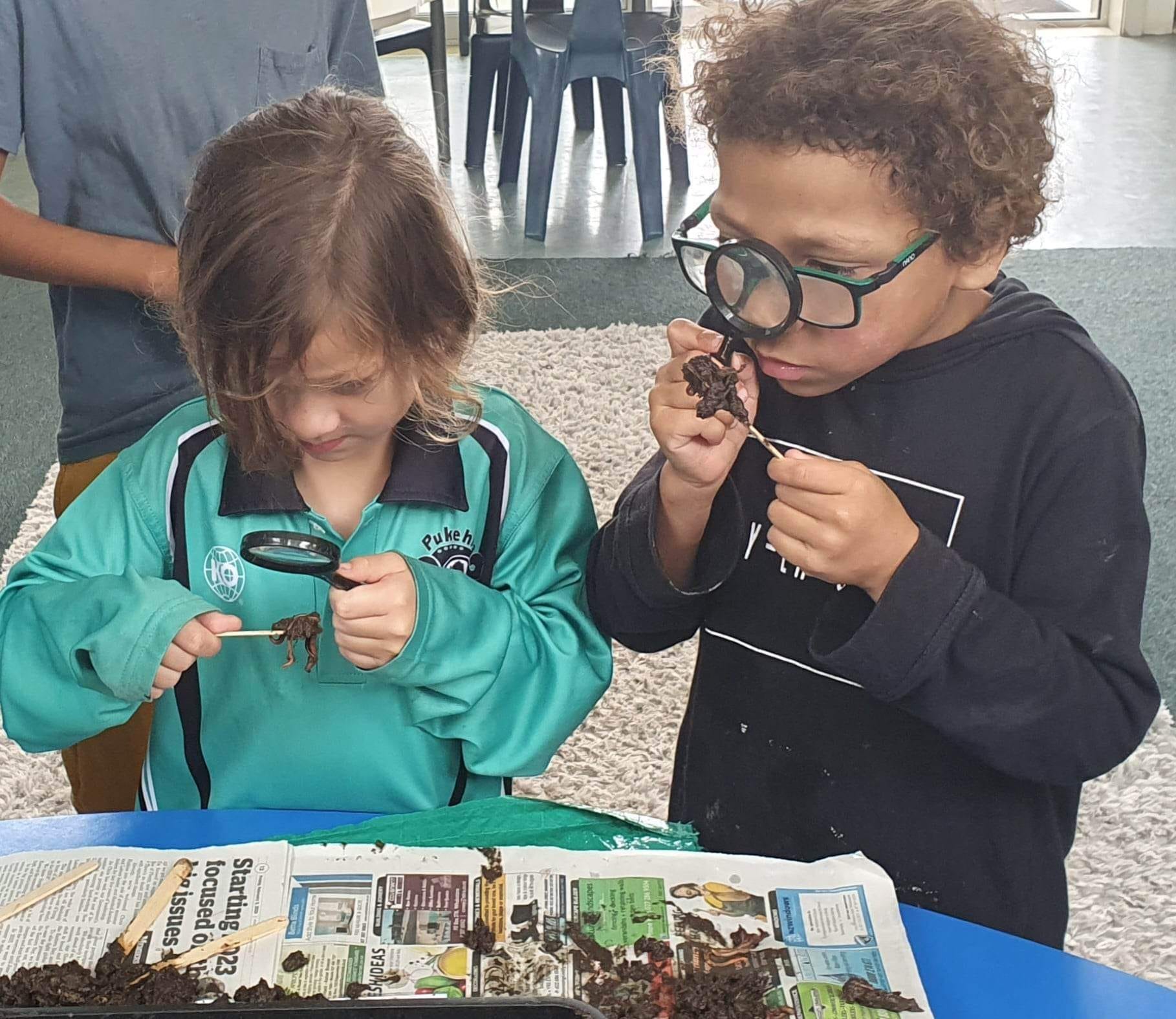
Image courtesy of Zero Waste Education
<h4>About 13 million tonnes of waste is sent to landfill each year in Aotearoa New Zealand.</h4>
<p>In an academic year, primary schools generate around 45 kilograms of waste per pupil, while secondary schools produce around 22 kilograms of waste per pupil. Food, paper and cardboard account for 70 percent of waste produced by schools, and while 80 percent of school waste is recyclable, only about 20 percent actually gets recycled.</p>
<p><a href="https://www.schoolnews.co.nz/latest-print-issue/" target="_blank" rel="noopener"><b>Read the latest print edition of <em>School News</em> online HERE.</b></a></p>
<p>Schools and kura have a special opportunity to help shape how ākonga think about waste, and teach them how to reduce food waste, and recycle and repurpose items when appropriate.</p>
<p>To understand your school’s waste situation, it might be valuable to conduct a waste audit. This will help determine the types of waste your school is generating.</p>
<p>Marty Hoffart, Chairman, Environmental Education for Resource Sustainability Trust, which oversees<a href="https://zerowasteeducation.co.nz/" target="_blank" rel="noopener"> Zero Waste Education</a> explained: “School waste audits are a great activity for gathering specific data for waste reporting, evaluating the effectiveness of the system already in place and finding ways to save money on waste costs,” Mr Hoffart said.</p>
<p>“It is the best way of establishing the need for additional waste streams and staff education if contamination is found. Waste audits help improve the management of waste streams by identifying and quantifying materials discarded into the landfill bins. Audits ultimately lead to more sustainable practices and cost savings for schools.”</p>
<p>To encourage students and staff to recycle, make sure food waste and recycling bins are located around your school alongside general waste bins. All bins must be clearly labelled to avoid contamination of waste streams. Paper and plastic recycling bins can also be incorporated into classrooms, or in staff lunchrooms or near photocopiers to encourage staff and students to recycle.</p>
<figure id="attachment_33648" aria-describedby="caption-attachment-33648" style="width: 583px" class="wp-caption aligncenter"><img class="wp-image-33648 " src="https://www.schoolnews.co.nz/wp-content/uploads/2025/05/SN69-PROP-Waste-management-Zero-Waste-Education-2-1024x485.jpeg" alt="" width="583" height="276" /><figcaption id="caption-attachment-33648" class="wp-caption-text">Image courtesy of Zero Waste Education</figcaption></figure>
<p>Food waste is a pervasive problem, and not just for schools. Where possible, schools should look for ways to keep food out of landfill. “There are many environmental, educational, and cost saving benefits of introducing worm farming and composting in schools,” Mr Hoffart said. “Composting protects the climate by reducing methane emissions from landfills while at the same time reducing waste going into landfills.</p>
<p>“When we dump organic waste into landfill and compact it with an 80-tonne compactor, it becomes harmful landfill gas and forms a liquid called leachate. Landfill gas (LFG) is a natural byproduct of the decomposition of organic material in landfills. LFG is composed of roughly 50 percent methane (the primary component of natural gas), 50 percent carbon dioxide (CO2) and a small amount of non-methane organic compounds,” Mr Hoffart said.</p>
<p>“Keeping this material above the ground recycles organic materials into a valuable soil amendment—compost. The natural process recovers nutrients in organic materials and provides an opportunity to keep them local. Composting also creates green jobs in the community.”</p>
<p>For ongoing waste management and sustainability gains, your school could introduce a green team or environment club, led by students who are passionate about the environment. By fostering sustainable waste management habits, both in the classroom and at home, educators can empower students to contribute to a greener future.</p>

Since 2015, fewer students are completing secondary school, defined as remaining enrolled in education until…
As the country’s Indian population grows, so does demand for Indian languages like Hindi, Punjabi…
By promoting alternate qualifications, some schools may have undermined public trust in NCEA, explains an…
When young people immerse themselves in nature, they leave feeling physically, mentally, emotionally and spiritually…
Theatre is much more than performance. Deep skills can be developed across multiple curriculum areas,…
NZCER found generative AI tools are frequently used to support teaching and learning in primary…
This website uses cookies.